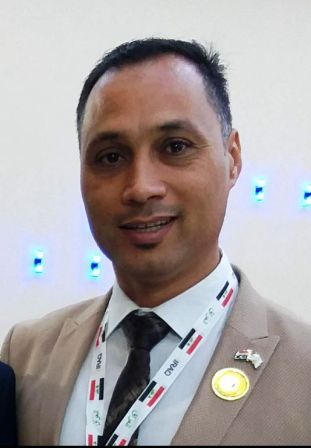The basic principles of sustainable development, which are (comprehensiveness, non-fragmentation and the elimination of underdevelopment) formed the main pillars of the vision and direction of Iraq towards achieving the sustainable development goals (the seventeen). He enjoys justice and good governance.
There are many challenges that stand in the way of achieving sustainable development goals or disrupting the development of their indicators in Iraq, and we can focus on the most important of them as follows:
1. Population: The population in Iraq increases by more than one million people annually, as it reached in 2018 estimates about (38) million people, and it is expected to reach (53) million people in 2030.
2. The structure of the economy: it is dominated by rentierism, and its crude oil exports accounted for about (90%) of the total exports, and it employs (3%) of the labor force, and this is a major obstacle in the employment of females and the poor.
3. Political instability: This revolves around the instability of its political system and the succession of power in it.
4. Corruption: The Corruption Perceptions Index revealed that the fight against corruption faltered, as Iraq achieved (18) degrees in the scale that includes (100) countries and ranked (168) out of (180) countries entered in the scale for 2018.
5. Reconstruction: The material damage resulting from the war of terrorist groups in the seven governorates (Anbar, Baghdad, Babil, Salah al-Din, Kirkuk, Diyala, Nineveh) for the year 2014 was estimated at about (75,306) trillion dinars, equivalent to (63.7 billion dollars) American.
And that Iraq has a role in succeeding towards achieving sustainable development goals, even if they were selected goals compared to the reality of sustainable development with other countries, as Iraq achieved a higher degree than the average in six goals out of a total of seventeen goals.
As we start with poverty, the increasing number of members of society who need to eliminate or reduce poverty in all its manifestations, through a coherent strategy, including strengthening social protection systems, providing decent employment and building the resilience of the poor, and in light of this, a national plan has been developed for the strategy of poverty alleviation in Iraq. 2018-2022) seeks to improve the conditions of the poor, either by improving their incomes or by improving their access to services of appropriate quality. ) and the least is Sulaymaniyah governorate with a rate of (4.5%).
As for health, the life expectancy at birth for males in 2018 was (71,7) years compared to 2014, when it was (67.7) years, and for females (75.6) years compared to the year 2014, (70) years. Iraq also achieved a significant decrease in health The infant mortality rate in 2018 was (14) children per (1000) births, while in the nineties of the last century it was (60) children per (1000) births.
As for education, higher education institutions have witnessed a great development in the use of new scientific colleges and the addition of modern buildings in most Iraqi universities. There are civil institutions and non-governmental organizations that have an important role in the development of the local community. The percentage of public spending on education out of total government spending is about (22.4%) ) for the year 2019.





